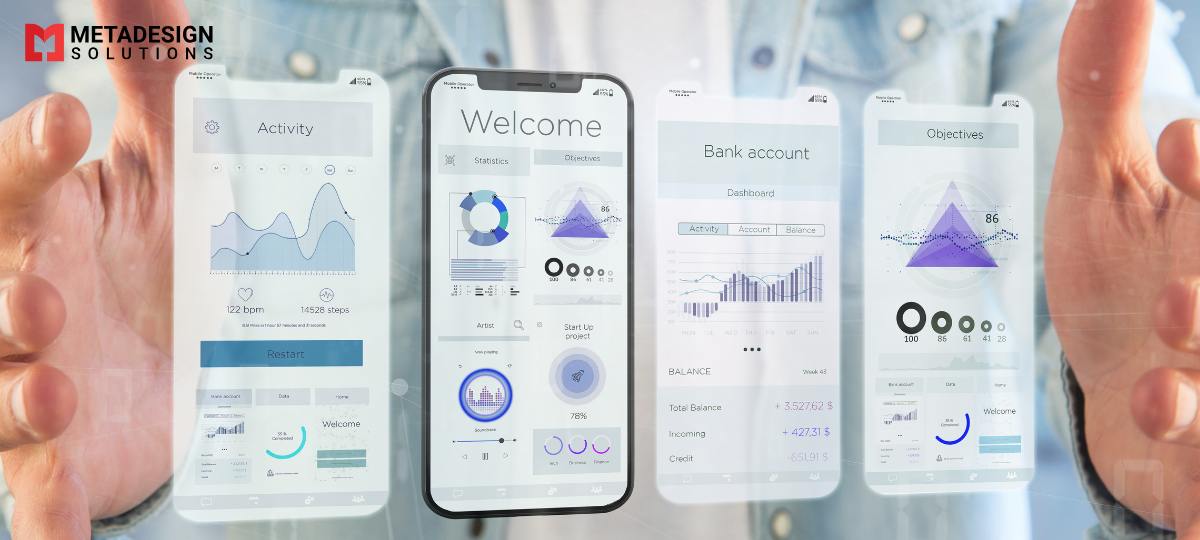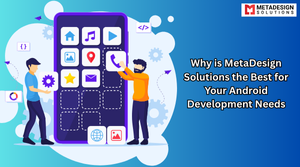The mobile app industry is on a meteoric rise, shaping the future of business and technology. With the global app market projected to exceed $613 billion by 2025, businesses that embrace these cutting-edge trends will stand out in the digital era. From immersive Virtual Reality Development Services to intelligent Machine Learning Development Services, the year 2025 promises to redefine how we interact with apps. Let’s dive deep into the top 11 trends that will dominate the mobile app space in 2025, with statistics that highlight their transformative potential.
In 2025, mobile applications continue to shape the future of business success. With over 7 billion smartphone users globally, businesses can no longer afford to overlook the importance of mobile app development. Mobile apps drive customer engagement, improve operational efficiency, and provide personalized experiences, ultimately enhancing brand loyalty.
According to Statista, the global mobile app market is projected to grow at a compound annual growth rate (CAGR) of 18.4% between 2023 and 2025, reaching a market size of over $1 trillion. This explosive growth is fueled by advancements in Augmented Reality Development Services, Virtual Reality Development Services, and Artificial Intelligence Development Services.
At MetaDesign Solutions, we specialize in crafting cutting-edge mobile applications that cater to your unique business needs. Our expertise spans multiple domains, including Wearable Apps Development Services, Machine Learning Development Services, and cloud-based solutions, ensuring your business stays competitive in an ever-evolving digital landscape.
Augmented Reality (AR) & Virtual Reality (VR) in Mobile Apps
According to recent industry reports, the AR and VR market has continued its exponential growth. By 2025, the combined market value of AR and VR is projected to exceed $200 billion, driven by advancements in hardware, software, and increased adoption across industries. AR development services, in particular, have seen widespread success in transforming user experiences in the technology world.
Current Trends in AR and VR
Many businesses across various sectors have integrated augmented reality into their mobile apps to enhance customer engagement and user experiences. AR and VR are no longer limited to gaming and entertainment; they are widely used in healthcare, education, retail, real estate, and manufacturing.
- Augmented Reality (AR) is used to overlay live views of real-world environments with digital enhancements, offering immersive experiences like virtual try-ons, navigation aids, and interactive learning tools.
- Virtual Reality (VR) recreates real-life situations, enabling businesses to offer simulations, training modules, and immersive experiences in a controlled environment.
Investments by Tech Giants
Major technology companies, including Meta, Apple, Google, and Microsoft, have invested heavily in AR and VR projects, with the release of cutting-edge devices like Apple Vision Pro, Meta Quest 3, and Microsoft HoloLens. These investments reflect the growing demand for AR and VR technologies, which are becoming essential tools for businesses to stay competitive and innovative.

Virtual Reality (VR) Apps
Virtual Reality (VR) applications have become mainstream across various sectors, including education, healthcare, real estate, and gaming. By 2025, advancements in VR development services, coupled with more affordable and accessible headsets like the Meta Quest 3 and PlayStation VR2, have further expanded VR adoption beyond entertainment into enterprise solutions, such as employee training and virtual collaboration tools.
Wearable Apps
Wearable devices have redefined tech trends, catering to fitness enthusiasts, music lovers, foodies, and individuals seeking convenience or navigation. Wearables have evolved to become integral to daily life, driving the next wave of mobile app development.
- Fitness and Health Monitoring: Devices like the Apple Watch Ultra and Fitbit Sense 2 now include advanced health monitoring features such as blood oxygen levels, heart rate variability, and stress management tools.
- Seamless Ecosystem Integration: Wearables now provide smoother integration with smartphones, smart homes, and other IoT devices.
According to Statista, the demand for wearable devices has surged, with global shipments exceeding 550 million units by 2025. This marks a significant leap from the 125 million units shipped in 2019. The number of connected devices worldwide has also skyrocketed, projected to exceed 1.5 billion devices by 2025, fueled by advancements in IoT and 5G connectivity.

Machine Learning in Apps
Machine Learning development services continues to be a transformational force in app development, enabling real-time data processing, predictive analytics, and highly personalized user experiences. With modern advancements in AI frameworks like TensorFlow, PyTorch, and Apple’s Core ML, app developers are leveraging ML for diverse applications, including:
- Personalized Recommendations: Tailored content and product recommendations in apps like Netflix, Spotify, and Amazon.
- Predictive Analytics: Enhanced user behavior predictions for optimizing app engagement and retention.
- Natural Language Processing (NLP): Applications in voice assistants like Siri, Google Assistant, and Alexa, enabling seamless voice interactions.
By 2025, ML has become integral to AI-driven applications, from virtual assistants to augmented reality filters in social media apps. The ability to analyze large datasets in real time empowers developers to identify complex patterns and deliver adaptive, user-centric solutions.

Artificial Intelligence (AI)
A report by PwC projects that Artificial Intelligence (AI) will contribute an astounding $15.7 trillion to the global economy by 2030, with North America’s GDP expected to grow by 14% as a result of AI integration. As we enter 2025, AI’s transformative impact on app development has become more evident than ever.
AI in Consumer and Enterprise Apps
AI development services has revolutionized both consumer and enterprise app development by enabling innovative features that enhance user experiences and streamline operations. In 2025, AI technology continues to push boundaries by:
- Automated Reasoning and Decision Making: Apps now leverage AI for real-time decision-making, predictive analytics, and operational efficiency across industries like healthcare, finance, and logistics.
- Behavioral Insights and Personalization: AI algorithms analyze user behavior patterns to offer personalized recommendations, making apps like Spotify, Netflix, and Amazon more intuitive and user-centric.
- Enhanced Chatbots and Virtual Assistants: AI-powered chatbots, integrated with Generative AI like OpenAI’s GPT-4 and Google Bard, offer human-like interactions, automating customer service, scheduling, and personal assistant tasks.
AI for the Internet of Things (IoT)
As IoT adoption continues to grow, AI serves as the backbone for intelligent apps that manage interconnected devices. AI enables real-time insights through machine learning, allowing developers to create apps that seamlessly operate in the IoT ecosystem, from smart home devices to industrial IoT applications.
AI-Driven Innovation in Mobile Apps
AI has unlocked new possibilities for mobile app developers, such as:
- Advanced Image and Voice Recognition: Apps like Google Lens and Shazam use AI to deliver highly accurate recognition and actionable insights.
- Predictive Maintenance: AI enables apps to predict device or system failures, improving reliability in sectors like manufacturing and transportation.
- Augmented Reality (AR) Enhancements: AI and AR integration offers immersive experiences in education, retail, and gaming.
By 2025, AI has solidified its role as a game-changer in app development, with widespread adoption across industries to deliver smarter, faster, and more engaging applications.

Internet of Things (IoT)
The Internet of Things (IoT) has witnessed extraordinary growth over the past decade. According to Statista, the installed base of IoT devices has surpassed 75.4 billion devices worldwide in 2025, a remarkable increase from 31 billion in 2020. This growth is fueled by advancements in 5G networks, edge computing, and smart device ecosystems.
IoT and Mobile App Development in 2025
The booming IoT landscape has profoundly influenced mobile app development, enabling real-time applications and revolutionizing the way devices interact. As IoT continues to evolve, its integration into mobile apps has led to numerous innovations, including:
- Smart Homes and Wearables: IoT apps now control devices such as smart thermostats, lighting, and wearables like Fitbit and the Apple Watch, offering seamless automation and monitoring capabilities.
- Industrial IoT (IIoT): In manufacturing, logistics, and agriculture, IoT-enabled apps monitor equipment, track shipments, and optimize resource management in real time.
- Healthcare Applications: IoT has transformed healthcare through remote monitoring devices, such as connected blood pressure monitors and smart insulin pumps, which send real-time health data to apps for better patient care.
Real-Time Applications
IoT devices enable mobile apps to provide real-time data and control across industries:
- Smart Cities: IoT-based apps manage traffic, reduce energy consumption, and enhance public safety through interconnected infrastructure.
- Connected Vehicles: IoT apps in autonomous vehicles ensure real-time updates on navigation, vehicle diagnostics, and safety.
Future of IoT in App Development
With a thriving ecosystem of IoT-enabled applications, the future of mobile app development lies in:
- Enhanced Security: Developers are focusing on securing IoT networks to prevent data breaches and ensure user privacy.
- Integration with AI and Machine Learning: IoT apps are becoming smarter, using AI to analyze data from devices for actionable insights.
- Edge Computing: Processing data closer to IoT devices reduces latency, making IoT apps faster and more efficient.
By 2025, IoT has firmly established itself as a cornerstone of modern technology, with mobile apps playing a critical role in unlocking its potential for consumers and businesses alike.
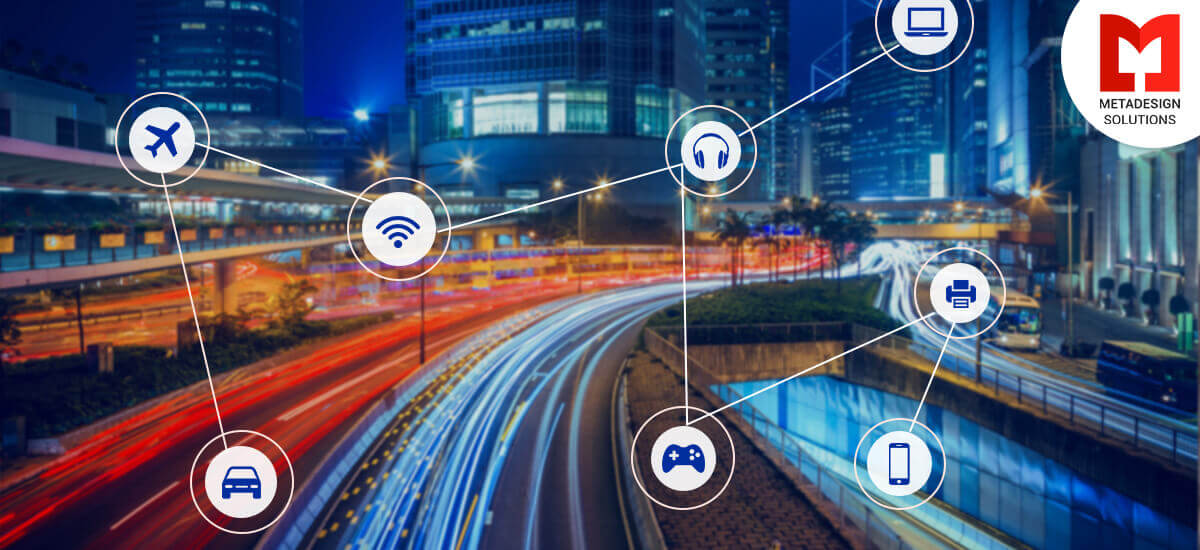
Accelerated Mobile Pages (AMP)
Accelerated Mobile Pages (AMP) continues to be a vital tool for improving website performance and engagement in 2025. It is an open-source framework designed to create fast, high-performing web pages that load seamlessly across devices. AMP remains popular among publishers and businesses looking to optimize their content for mobile users.
Benefits of AMP in 2025
- Enhanced Speed and Reliability: AMP pages load 15–85% faster than non-AMP pages, delivering a seamless user experience on mobile devices. This is especially critical as mobile web traffic constitutes over 60% of global internet traffic in 2025.
- Flexible and Engaging Content: AMP supports rich content such as videos, animations, and graphics, loading simultaneously with ads without compromising speed or quality.
- Cross-Platform Compatibility: AMP pages work seamlessly across platforms and devices, ensuring content is instantly accessible on smartphones, tablets, and apps.
Evolution of AMP
Since its inception by Google, the AMP project has evolved significantly:
- Enhanced Interactivity: AMP now supports advanced interactive components such as carousels, accordions, and dynamic content updates, bridging the gap between speed and user engagement.
- Core Web Vitals Alignment: AMP is optimized to meet Google’s Core Web Vitals standards, ensuring high rankings in search engine results while providing an exceptional user experience.
- Integration with Modern Frameworks: In 2025, AMP integrates smoothly with popular frameworks like React and Next.js, allowing developers to use AMP for progressive web apps (PWAs) and modern websites.
AMP vs. Competing Technologies
AMP has remained competitive against alternatives like Facebook Instant Articles and Apple News, offering:
- Open-Source Flexibility: AMP’s open-source nature gives developers and publishers the freedom to customize their pages.
- SEO Advantages: AMP pages are prominently featured in Google’s search results, including rich results and the Top Stories carousel, driving higher engagement and click-through rates.
As digital experiences become increasingly mobile-first, AMP continues to play a pivotal role in ensuring fast, reliable, and engaging web content, empowering businesses to meet the demands of modern users effectively.
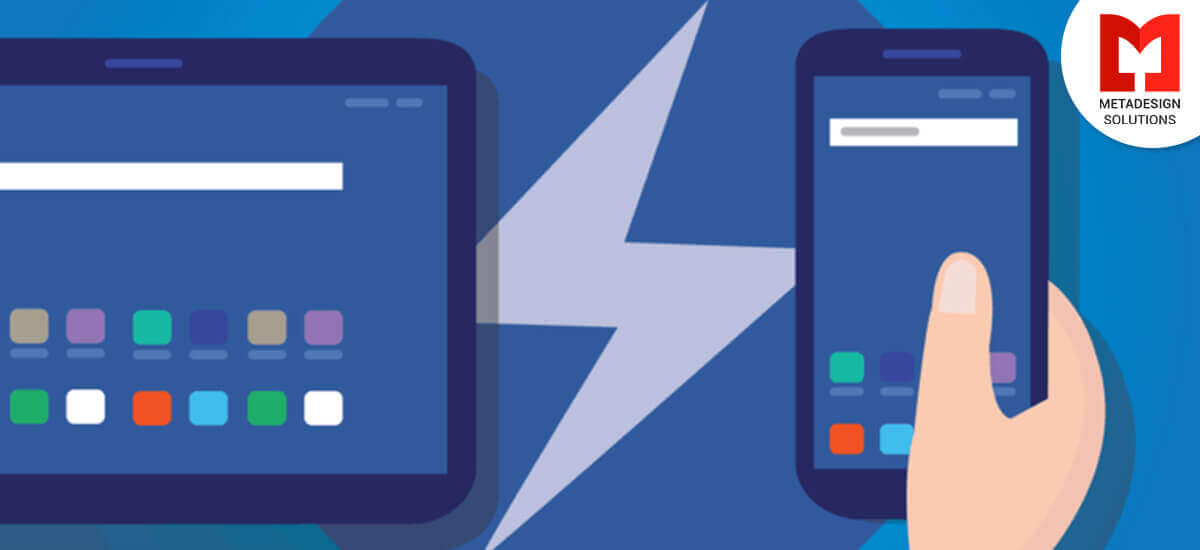
Blockchain
Blockchain technology, a revolutionary form of decentralized and secure database management, continues to redefine industries in 2025. Blockchain can be public (like the internet) or private (like an intranet) and has evolved far beyond its initial application as the backbone of cryptocurrencies like Bitcoin.
The Growth of Blockchain Technology
According to recent reports, the global blockchain market has grown to exceed $25 billion by 2025, driven by its adoption across industries such as finance, supply chain, healthcare, and real estate. Furthermore, over 95% of major North American and European banks are actively utilizing blockchain solutions, highlighting its mainstream acceptance in the financial sector.
Key Advantages of Blockchain
- Security and Transparency: Blockchain’s decentralized nature ensures secure transactions and records that are highly transparent. Anyone with authorized access can view the immutable transaction history, building trust and reducing fraud.
- Decentralization: The absence of a central authority allows for peer-to-peer transactions, reducing costs and increasing efficiency.
- Smart Contracts: Blockchain supports automated contracts that self-execute when predefined conditions are met, making processes like payments, agreements, and legal workflows seamless.
Blockchain in Mobile App Development
Blockchain’s capabilities are being increasingly harnessed in mobile apps to enhance security, transparency, and efficiency. In 2025, blockchain is widely used in:
- Fintech Apps: For secure digital wallets, peer-to-peer payment systems, and crypto trading platforms.
- Supply Chain Apps: To provide real-time tracking of goods and transparent supply chain data.
- Healthcare Apps: To securely manage patient records, ensuring data privacy and interoperability.
- Gaming and NFTs: Blockchain-powered games and NFT marketplaces allow players and creators to own, trade, and monetize digital assets.
Blockchain Adoption by C-Level Executives
The success of blockchain is reflected in its widespread adoption among enterprises:
- Approximately 40% of C-level executives in 2025 are exploring blockchain for digital transformation and app development, up from one-third in earlier years.
- Blockchain’s potential for improving operational efficiency and reducing costs makes it a priority for executives in various sectors.

Mobile Payments
With the rapid evolution of online banking and digital financial solutions, mobile payments are reaching unprecedented levels of adoption. Apps like Apple Pay, Google Pay, Samsung Pay, and PayPal have transformed smartphones into powerful tools for seamless transactions, offering users convenience and security in everyday payments.
Current Trends:
- Global Market Growth: According to a recent report by Statista, the global mobile payment market is expected to grow at a compound annual growth rate (CAGR) of 24% from 2023 to 2028, reaching a valuation of over $4 trillion by 2028.
- In-Person Payments: Contactless payment methods using NFC (Near Field Communication) technology are surging in popularity, with businesses worldwide enabling tap-to-pay options.
- Remote Payments: E-commerce continues to drive remote mobile payments, which account for a significant portion of the market, fueled by rising consumer trust in mobile payment platforms.
Key Factors Driving Growth:
- Consumer Preference: Users increasingly favor mobile payments for their speed, ease of use, and integration with loyalty programs.
- Global Digitalization: Governments and businesses are promoting cashless ecosystems, boosting mobile payment adoption.
- Enhanced Security: Biometric authentication, tokenization, and advanced encryption are making mobile payments safer than ever.
Future Projections:
By 2025, mobile payment volumes are expected to double as more businesses integrate payment solutions directly into their mobile apps. From in-app purchases to recurring subscriptions, mobile payment systems are redefining customer experiences across industries.
Businesses leveraging Mobile Payment Integration Services will not only enhance convenience for their customers but also gain a competitive edge in the fast-growing digital economy. Whether it’s enabling seamless checkout experiences or integrating advanced analytics for payment tracking, mobile payment solutions are a game-changer for businesses of all sizes.

Cloud-Based Apps
Cloud-based apps have become the foundation for scalable, efficient, and secure mobile app development in 2025. The demand for mobile cloud computing continues to grow as businesses prioritize flexibility and performance in their applications.
Growth of Cloud Computing
- The global cloud computing market surpassed $850 billion in 2025, far exceeding earlier predictions.
- Public cloud adoption has soared, with over 60% annual growth as businesses migrate to cloud-based infrastructures.
- Hybrid and multi-cloud environments have become the standard, enabling organizations to balance cost, performance, and data residency requirements.
Advantages of Cloud-Based Apps
- Scalability: Cloud-based apps can handle surges in demand without compromising performance.
- Reliability and Security: With data stored in the cloud, apps benefit from backup and recovery solutions, as well as advanced security measures like end-to-end encryption.
- Cost-Effectiveness: Reduced reliance on physical hardware lowers operational costs.
- Data Analysis: The cloud enables real-time analysis of user data, helping developers improve app features and personalize user experiences.
Use Cases in 2025
- Collaboration Tools: Apps like Google Workspace and Microsoft Teams use cloud-based technology to facilitate remote work.
- Streaming Services: Platforms such as Netflix and Spotify rely on cloud computing for seamless content delivery.
- Mobile Gaming: Cloud-based gaming apps like NVIDIA GeForce NOW and Xbox Cloud Gaming provide high-quality experiences without the need for high-end devices.
Cloud-based technologies have proven essential for creating high-performance apps, enabling developers to innovate and scale with ease while ensuring security and reliability for users.

On-Demand Apps
In 2025, on-demand apps continue to dominate the mobile app market, revolutionizing how services are delivered and consumed. These apps cater to a wide range of services, including cleaning, food delivery, beauty services, healthcare, transportation, and home repairs, making daily life more convenient for users.
Market Growth and Demand
- The global on-demand app market is projected to exceed $500 billion by 2025, driven by consumer preferences for fast and personalized services.
- Startups and enterprises are increasingly adopting the on-demand model to cater to urban and remote areas, ensuring accessibility and convenience.
- Key sectors, such as healthcare on-demand apps and home service apps, have experienced explosive growth post-pandemic, addressing new consumer habits.
Features Driving the Success of On-Demand Apps
- Real-Time Tracking: Apps like Uber and DoorDash provide real-time updates for deliveries and transportation.
- Personalization: AI-driven algorithms offer tailored recommendations and services.
- Seamless Payment Integration: Secure, fast payment options, including wallets and blockchain-based systems, ensure smooth transactions.
- Scalability: Cloud-based infrastructures allow on-demand apps to handle fluctuating demand with ease.
Popular On-Demand App Categories
- Food Delivery: Apps like Uber Eats, DoorDash, and Zomato continue to dominate the space.
- Healthcare: Telemedicine apps like Teladoc Health and Practo offer on-demand medical consultations.
- Home Services: Platforms like TaskRabbit and Urban Company provide cleaning, repairs, and handyman services.
- Transportation: Ride-hailing apps like Uber and Lyft remain essential for urban mobility.
With their unparalleled convenience, on-demand apps are shaping the future of service delivery, offering businesses opportunities for growth and creating more streamlined experiences for users.
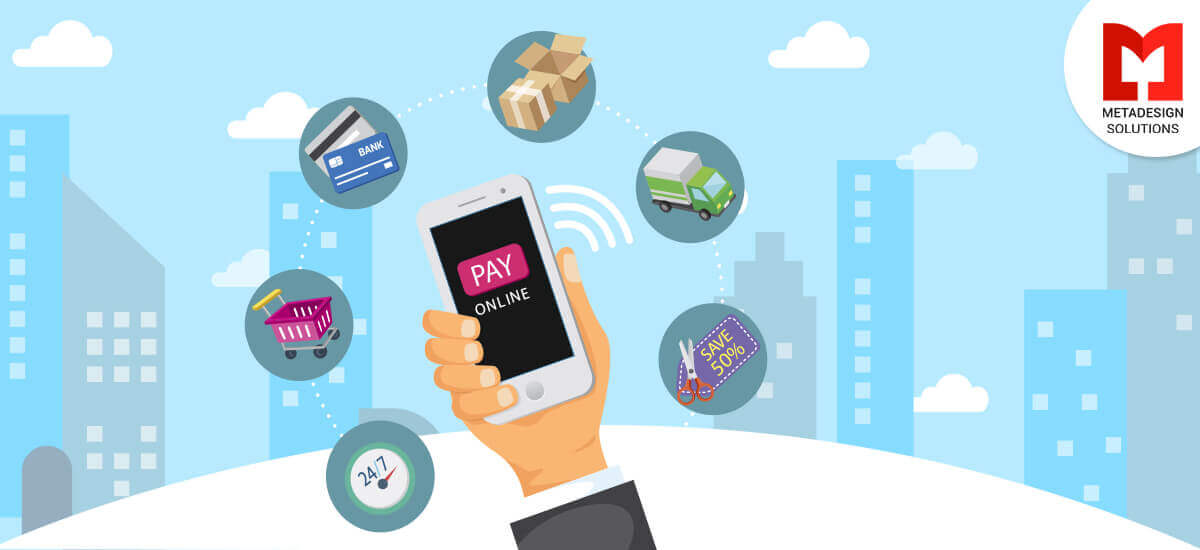
As we move through 2025, mobile applications remain at the forefront of business transformation. With over 7.5 billion smartphone users globally, mobile apps are no longer optional—they are a strategic necessity for businesses looking to thrive in an increasingly digital marketplace. Mobile apps help companies reach broader audiences, enhance customer engagement, and deliver personalized experiences that build brand loyalty and drive revenue growth.
The Role of Mobile Apps in Business Success
Mobile apps empower businesses to:
- Connect with Customers Anytime, Anywhere: Offering convenience and accessibility across time zones and geographies.
- Enhance Customer Experience: Delivering tailored experiences with features like personalized recommendations, real-time notifications, and seamless checkout processes.
- Improve Operational Efficiency: Streamlining workflows, enabling on-demand access to information, and fostering better internal communication.
Mobile apps are not just customer-facing tools; they also empower employees by enabling:
- On-the-Go Productivity: Providing remote access to critical business data and tools.
- Streamlined Decision-Making: Offering real-time insights and analytics to support strategic decisions.
Why Choose MetaDesign Solutions for Mobile App Development?
MetaDesign Solutions, a leader in mobile app and wearable app development, specializes in delivering customized, innovative, and highly functional solutions for businesses of all sizes.
Our expertise includes:
- Cross-Platform Development: Utilizing frameworks like React Native and Flutter to build apps that work seamlessly across Android and iOS platforms, reducing costs and time-to-market.
- Backend Excellence: Leveraging robust technologies like Python and Node.js to handle:
- High-Demand Apps: Real-time data processing and scalability for user-heavy applications.
- Advanced Data Capabilities: Python excels at powering apps requiring machine learning, AI integration, or scientific computing.
- Real-Time Updates: Node.js ensures smooth and efficient performance for apps involving frequent user interactions, such as messaging platforms or live tracking systems.
Why Mobile Apps Are More Crucial Than Ever in 2025
With the growth of 5G networks, AI-driven personalization, and IoT integration, mobile apps in 2025 are evolving into comprehensive ecosystems that:
- Support augmented reality (AR) and virtual reality (VR) experiences.
- Enable secure transactions through blockchain integration.
- Drive customer insights with real-time data analytics.
Trusted Mobile App Development Partner
At MetaDesign Solutions, we take pride in delivering tailored app solutions that align perfectly with your unique business objectives. Whether you’re looking to build an enterprise app, a customer-facing e-commerce platform, or a wearable app, we have the tools, expertise, and passion to bring your vision to life.
Let’s Build the Future Together
Ready to elevate your business with a cutting-edge mobile app? Contact MetaDesign Solutions today, and let’s create a solution that propels your business forward in the digital era.
We are a trusted Mobile and Wearable App Development Company, offering a wide range of mobile app development services. Our portfolio includes some of the best Android, iOS, and Hybrid Projects, tailored to meet diverse business needs. Click here to explore our success stories.

Related Keyphrase:
#MobileAppTrends #AppDevelopment #MobileAppInnovation #TechSolutions #MobileAppDevelopment #AppDevelopmentCompany #MobileAppServices #HireMobileAppDevelopers #TechInApps #MobileAppSolutions #AppDesign #MobileAppUX #MobileAppExperts #AppDevelopmentServices #CustomAppDevelopment #TechConsulting #MobileAppDevelopmentCompany #AppSolutions #AppDevelopmentExperts #AppTechnology #MobileAppMarketing #MobileAppFeatures
